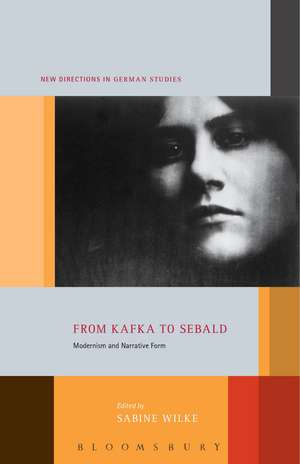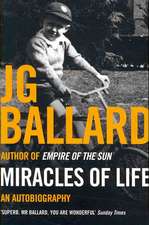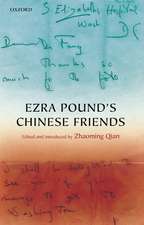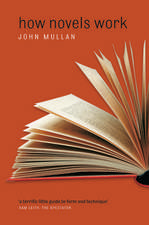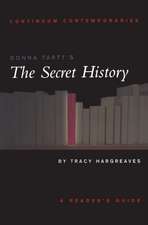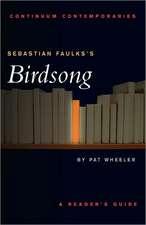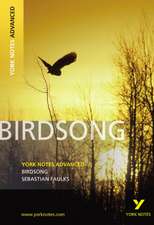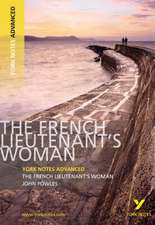From Kafka to Sebald: Modernism and Narrative Form: New Directions in German Studies
Editat de Professor Sabine Wilkeen Limba Engleză Paperback – 19 noi 2014
| Toate formatele și edițiile | Preț | Express |
|---|---|---|
| Paperback (1) | 183.70 lei 3-5 săpt. | |
| Bloomsbury Publishing – 19 noi 2014 | 183.70 lei 3-5 săpt. | |
| Hardback (1) | 771.75 lei 6-8 săpt. | |
| Bloomsbury Publishing – 22 aug 2012 | 771.75 lei 6-8 săpt. |
Din seria New Directions in German Studies
-
 Preț: 470.91 lei
Preț: 470.91 lei - 8%
 Preț: 145.46 lei
Preț: 145.46 lei - 11%
 Preț: 219.84 lei
Preț: 219.84 lei - 23%
 Preț: 190.50 lei
Preț: 190.50 lei -
 Preț: 169.04 lei
Preț: 169.04 lei -
 Preț: 217.09 lei
Preț: 217.09 lei - 7%
 Preț: 134.49 lei
Preț: 134.49 lei - 14%
 Preț: 183.24 lei
Preț: 183.24 lei -
 Preț: 217.62 lei
Preț: 217.62 lei - 21%
 Preț: 214.78 lei
Preț: 214.78 lei - 30%
 Preț: 718.85 lei
Preț: 718.85 lei - 22%
 Preț: 237.93 lei
Preț: 237.93 lei - 22%
 Preț: 225.77 lei
Preț: 225.77 lei - 22%
 Preț: 256.77 lei
Preț: 256.77 lei - 22%
 Preț: 225.41 lei
Preț: 225.41 lei - 23%
 Preț: 222.46 lei
Preț: 222.46 lei - 30%
 Preț: 714.12 lei
Preț: 714.12 lei - 30%
 Preț: 568.22 lei
Preț: 568.22 lei - 21%
 Preț: 218.36 lei
Preț: 218.36 lei - 11%
 Preț: 218.47 lei
Preț: 218.47 lei - 13%
 Preț: 186.35 lei
Preț: 186.35 lei - 30%
 Preț: 569.94 lei
Preț: 569.94 lei - 21%
 Preț: 218.83 lei
Preț: 218.83 lei - 22%
 Preț: 256.20 lei
Preț: 256.20 lei - 14%
 Preț: 190.06 lei
Preț: 190.06 lei - 23%
 Preț: 197.14 lei
Preț: 197.14 lei - 13%
 Preț: 255.11 lei
Preț: 255.11 lei - 22%
 Preț: 226.79 lei
Preț: 226.79 lei - 30%
 Preț: 568.14 lei
Preț: 568.14 lei - 14%
 Preț: 191.85 lei
Preț: 191.85 lei -
 Preț: 183.24 lei
Preț: 183.24 lei -
 Preț: 231.81 lei
Preț: 231.81 lei - 22%
 Preț: 230.24 lei
Preț: 230.24 lei
Preț: 183.70 lei
Preț vechi: 214.23 lei
-14% Nou
Puncte Express: 276
Preț estimativ în valută:
35.15€ • 37.59$ • 29.31£
35.15€ • 37.59$ • 29.31£
Carte disponibilă
Livrare economică 27 martie-10 aprilie
Preluare comenzi: 021 569.72.76
Specificații
ISBN-13: 9781628928624
ISBN-10: 162892862X
Pagini: 200
Dimensiuni: 140 x 216 x 18 mm
Greutate: 0.27 kg
Editura: Bloomsbury Publishing
Colecția Bloomsbury Academic
Seria New Directions in German Studies
Locul publicării:New York, United States
ISBN-10: 162892862X
Pagini: 200
Dimensiuni: 140 x 216 x 18 mm
Greutate: 0.27 kg
Editura: Bloomsbury Publishing
Colecția Bloomsbury Academic
Seria New Directions in German Studies
Locul publicării:New York, United States
Caracteristici
Approaches the question of narrative via important issues: gender, performance, trauma theory, criminality, exile, autobiography.
Notă biografică
Sabine Wilke is Professor of German at the University of Washington, Seattle, USA, where she is also associated with European Studies, and the Program in Critical Theory. Her research and teaching interests include modern German literature and culture, intellectual history and theory, and cultural studies. She has written books and articles on body constructions in modern German literature and culture, German unification, the history of German film and theater, contemporary German authors and filmmakers, German colonialism and the overlapping concerns of postcolonialism and ecocriticism.
Cuprins
Introduction: Kafka, Modernism, and BeyondSabine Wilke, University of Washington, USAI: Kafka's SlippagesRitardando in Das SchloßStanley Corngold, Princeton University, USAKafka's "A Hunger Artist" as Allegory of Bourgeois Subject ConstructionImke Meyer, University of Illinois at Chicago, USAII: Kafka EffectsHofmannsthal after 1918: The Present as ExileJens Rieckmann, University of California, Irvine, USAYvan Goll's Die Eurokokke: a Reading Through Walter Benjamin's Passagen-WerkRolf Goebel, University of Alabama in Huntsville, USAIII: Narrative TheoryElse Meets Dora: Narratology as a Tool for Illuminating Literary TraumaGail Finney, University of California, Davis, USA"Das kleine Ich": Robert Menasse and Masculinity in Real TimeHeidi Schlipphacke, University of Illinois at Chicago, USASebald's Encounters with French NarrativeJudith R. Ryan, Harvard University, USAIV: AutobiographyGender, Psychoanalysis, and Childhood Autobiography: Christa Wolf's KindheitsmusterLorna Martens, University of Virginia, USAProvisional ExistenceWalter H. Sokel, USA
Recenzii
This wide-ranging, sophisticated anthology provides impetus to the renewed interest in a scholarly narratological approach to prose fiction. By drawing an ark between Franz Kafka and W. G. Sebald... Wilke projects a whole spectrum of diverse narrative experiments. Ten expert scholars contribute findings which can readily be applied to modern narratives beyond any single national literature.
From Kafka to Sebald is a thrilling contribution to the contemporary reinvigoration of narratology. What is more, it sheds light on the 'Kafka-effect' in German literature, by bringing Kafka's writing into dialogue with those who shared his Habsburg moment-Freud, Hofmannsthal, Schnitzler-and then examining his legacy in authors such as Christa Wolf, Robert Menasse, and W.G. Sebald. The volume ultimately demonstrates deftly how modernism's formal innovations did not come out of thin air but were embedded profoundly in the historical traumas of twentieth-century Germany and Austria." -- John Zilcosky, Chair, Department of Germanic Languages and Literatures, University of Toronto, Canada
"The topics of this volume-narrative, the subject, history, trauma-combine to produce a cultural autobiography, a self-account that the world of German-language writing has offered in the century of modernism. Displaced from a problematic, self-described 'German' core, the authors discussed here demonstrate that the vitality of twentieth-century German literature derives from the richness and variety of writers who are, in the main, not at all (or not quite) German. Narrative becomes not only the vehicle but also the tenor of these essays. Autobiography describes how the subject is formed, whether in a novel by Christa Wolf or reflections by Walter Sokel; and it proposes a model for Kafka's "A Hunger Artist," or the 'small i' in Robert Menasse's work. This volume, a fitting tribute to Richard Gray from scholars of equal eminence, will appeal to all who see in modernism a telling of reality of both great power and a terrible beauty." -- Ruth V. Gross, Professor of German and Chair, Department of Foreign Languages and Literatures, North Carolina State University, USA.
With Kafka and Sebald in the title as well as an alluring black-and-white photograph - taken from Sebald's Austerlitz - on the dust jacket, this book immediately captures one's curiosity. From Kafka to Sebald [brings] together nine contributions on German-language modernist fiction ... The nine articles trace specific developments in German-language fiction of the twentieth century and present a variety of approaches and perspectives . Taken together, the essays challenge the notion of narrative as a "universal structure" and illustrate how the "critique of narrative" encapsulates one of the defining aspects of twentieth-century modernist narrative forms . This volume's overarching concern of narrative form within German-language modernist fiction will interest a broad spectrum of readers.
This collection of articles, written by well-known scholars, contributes to a literary analysis of historical practices without neglecting the aesthetic aspects. It illuminates various genres and demonstrates how narratives reflect societal practices symbolically and directly and how community norms are constituted and unconsciously internalized. On the whole, this useful collection serves the current interest in narration, as it brings together a number of different examples of literary interpretations in postmodern times from the genre point of view.
From Kafka to Sebald is a thrilling contribution to the contemporary reinvigoration of narratology. What is more, it sheds light on the 'Kafka-effect' in German literature, by bringing Kafka's writing into dialogue with those who shared his Habsburg moment-Freud, Hofmannsthal, Schnitzler-and then examining his legacy in authors such as Christa Wolf, Robert Menasse, and W.G. Sebald. The volume ultimately demonstrates deftly how modernism's formal innovations did not come out of thin air but were embedded profoundly in the historical traumas of twentieth-century Germany and Austria." -- John Zilcosky, Chair, Department of Germanic Languages and Literatures, University of Toronto, Canada
"The topics of this volume-narrative, the subject, history, trauma-combine to produce a cultural autobiography, a self-account that the world of German-language writing has offered in the century of modernism. Displaced from a problematic, self-described 'German' core, the authors discussed here demonstrate that the vitality of twentieth-century German literature derives from the richness and variety of writers who are, in the main, not at all (or not quite) German. Narrative becomes not only the vehicle but also the tenor of these essays. Autobiography describes how the subject is formed, whether in a novel by Christa Wolf or reflections by Walter Sokel; and it proposes a model for Kafka's "A Hunger Artist," or the 'small i' in Robert Menasse's work. This volume, a fitting tribute to Richard Gray from scholars of equal eminence, will appeal to all who see in modernism a telling of reality of both great power and a terrible beauty." -- Ruth V. Gross, Professor of German and Chair, Department of Foreign Languages and Literatures, North Carolina State University, USA.
With Kafka and Sebald in the title as well as an alluring black-and-white photograph - taken from Sebald's Austerlitz - on the dust jacket, this book immediately captures one's curiosity. From Kafka to Sebald [brings] together nine contributions on German-language modernist fiction ... The nine articles trace specific developments in German-language fiction of the twentieth century and present a variety of approaches and perspectives . Taken together, the essays challenge the notion of narrative as a "universal structure" and illustrate how the "critique of narrative" encapsulates one of the defining aspects of twentieth-century modernist narrative forms . This volume's overarching concern of narrative form within German-language modernist fiction will interest a broad spectrum of readers.
This collection of articles, written by well-known scholars, contributes to a literary analysis of historical practices without neglecting the aesthetic aspects. It illuminates various genres and demonstrates how narratives reflect societal practices symbolically and directly and how community norms are constituted and unconsciously internalized. On the whole, this useful collection serves the current interest in narration, as it brings together a number of different examples of literary interpretations in postmodern times from the genre point of view.
